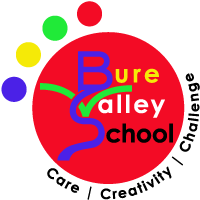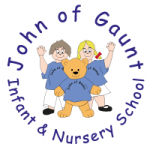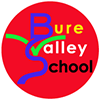Our curriculum has been designed to empower our pupils and provide them with the knowledge, the confidence and the social & emotional skills they will need to lifelong successful learners.
At Bure Valley School, we take pride in offering an engaging, broad, and balanced curriculum that builds upon the knowledge, understanding, and skills of all learners, regardless of their starting points. Our aim is to equip children with the skills necessary for success, independence, and motivation in their educational journey.
Guiding Principles:
Our curriculum is crafted with careful consideration of various factors:
- National Curriculum Programs of Study: Ensuring alignment with national standards;
- Context and Co-operative Values: Incorporating our unique context, cooperative values and agreed curriculum drivers;
- Partnerships: Collaborating with other schools and local organisations to enhance the learning content and experiences of pupils;
- Pupil Body: Tailoring our curriculum to the types of children we serve, recognising their strengths and potential challenges associated to the community we serve;
- Family Engagement: Leveraging the strengths of the families we serve to create a supportive learning community;
- Secondary Readiness: Focusing on preparing pupils for the next stage of their education;
- Core Knowledge: Prioritising essential knowledge that contributes to a well-rounded education;
- Interconnected, Optimally Sequenced, and Progressive Design: Ensuring a curriculum that is cohesive, well-structured, and promotes continuous progression;
BVS Horizons:
Our BVS Horizons program ensures that every pupil leaves our school with the independence, skills, and understanding needed for a confident transition to secondary school. We prioritise the holistic development of each child, emphasising not only academic success but also personal growth and well-being.
Themed Events and Weeks:
Throughout the academic year, we host a variety of themed events to enrich the learning experience. These events allow children to concentrate on specific areas of learning, providing intensive and satisfying educational opportunities.
Communication as a Core Focus:
Recognising communication as fundamental to learning and self-expression, we emphasise the development of verbal and written communication skills as a central curriculum driver.
Continuous Professional Development:
As a research-informed school, we value continuous professional development for our teachers. This emphasis on strong pedagogy complements our excellent curriculum delivery.
Inclusive Environment:
BVS is committed to providing a highly inclusive environment where learners enjoy their education and make progress across various subjects and areas of learning.
Emotional Literacy and Mental Health:
Our structured curriculum, awareness days, and in-house SEMH professionals ensure that children are emotionally literate and mentally healthy.
Monitoring and Evaluation:
Curriculum leaders play a crucial role in monitoring, evaluating, and celebrating good practice. Regular training opportunities ensure that subject leaders contribute effectively to curriculum development and implementation.
Curriculum Design and Assessment Practices:
We are dedicated to fostering clarity in our curriculum design and assessment practices. Focusing on the teaching of, and pupil’s ability to recall substantive knowledge and core concepts from our curriculum. To do this, subject leads specify the core threads, essential knowledge and key vocabulary required for each subject and unit.
Our curriculum approach encourages thorough teaching to ensure pupils grasp key concepts before progressing. Our assessment model incorporates both formative and summative assessment, and these practices help us to monitor progress, correct instruction and develop our curriculum offer over time.
As part of our formative assessment practices, teachers will clarify learning intentions, engineer effective discussions and provide feedback to enhance understanding. This responsive teaching strategy involves setting clear goals, identifying areas of understanding and misunderstanding and adapting teaching accordingly.
We view assessment as a tool for driving instructional improvement and through regular evaluations by school leaders, subject leads and teachers we can ensure alignment with medium-term unit plans and learning intentions. Termly professional dialogue meetings also provide a platform for teachers to discuss the implementation of planned material and the use of feedback and assessment in adjusting content delivery.
Retrieval practices are built into the curriculum and this enable learners to revisit topics, key concepts and core knowledge as they progress through key stage two.
Teacher assessment is based on the progress pupils make against the key skills set out in our programme of study for each subject. We call these Curriculum Related Expectations (CRE) and these are outlined in medium term plans and subject impact statements. When assessing, teachers take into account the purpose and aims of each subject, consider the quality of work being produced and how effectively pupils are working and their attitude.
In core subjects we classify pupils’ as either working towards (WTS), at the expected standard (EXS) or above the expected standard (GDS). Teacher assessments are informed by formative assessment and the outcomes of standardised tests.
In the foundation subjects we categorise pupils as working at (WA) or working towards (WT) curriculum related expectations.
Assessment and Success Measures:
To measure the success of our curriculum we monitor, use and review:
- Teacher assessment and data analysis
- Pupil voice
- Parent/carer feedback
- Quality of work produced by pupils
- Curriculum unit outcomes
- Behaviours for learning and pupil’s attitudes towards learning
- Participation rates
- Progress against agreed curriculum drivers



